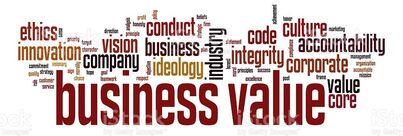
· Potential synergistic benefits of your business if they currently own a related business
· Capital / financing available to close the transaction
· Experience in completing acquisitions
· Previous knowledge of, or involvement with, the company / industry
· Geographical proximity
It is at this point that it is time to make the first critical decision. How broadly should you market your company? A wide offering distribution increases the probability of achieving the best price, but also increases the likelihood of damaging your company by releasing sensitive business information to a wide range of people.
Your competitors may be the ‘best’ buyers, but they are also the ones who could inflict the most harm on your business if they are privy to confidential information.
From the perspective of the owner, prospective buyers, the IRS, lenders and divorce & bankruptcy courts, the value of a business for purposes of a sale, estate planning, orderly or forced liquidation, gifting, divorce, etc. can be vastly different.
Intrinsically tied to the various purposes of valuation are numerous definitions of “value.” Here are a few examples:
- Investment Value – The value an acquirer places on a business based on a future return on investment determined by assessing past and current performance, future prospects, and other opportunities and risk factors involving the business.
- Liquidation Value – The value derived from the sale of the assets of a business that is closed or expected to be closed following the sale.
- Book Value – Book value is the difference between the total assets and total liabilities as accounted for on the company’s balance sheet.
- Going Concern Value – Used to define the intangible value which may exist as a result of a business having such attributes as an established, trained and knowledgeable workforce, a loyal customer base, in-place operating systems, etc.
- Fair Market Value – For the purpose of this article, the focus will be on transaction related valuations. Fair Market Value (“FMV”) is the most relevant definition of “value” and is of the most interest to business owners. The more knowledge business owners and prospective buyers have about the valuation process, the more likely they will come to an agreement on a purchase price.


 RSS Feed
RSS Feed


